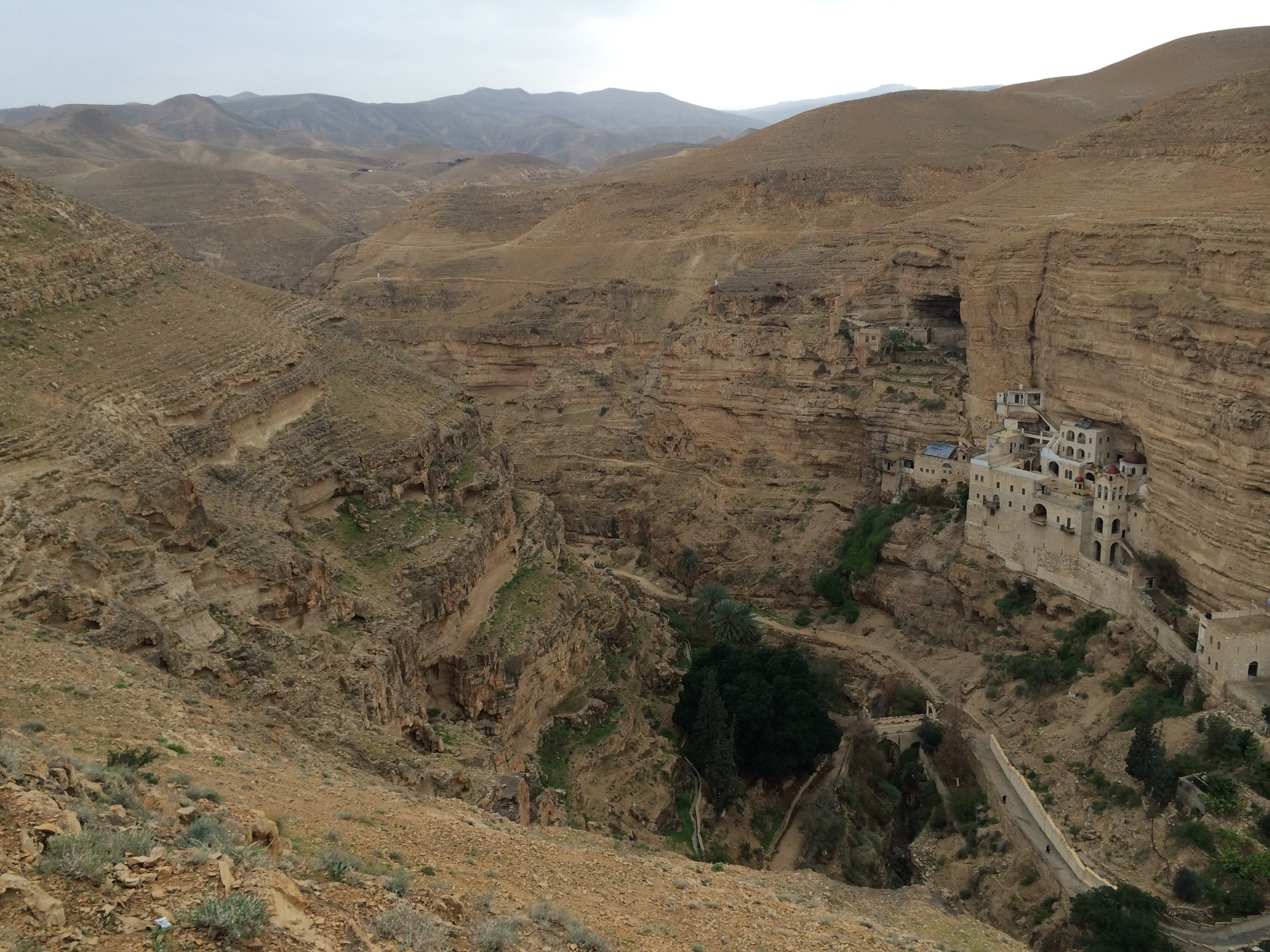Reaching
/
Mountain hikers know that it is around the middle of the mountain where the mind and heart receive a jolt of perspective. We feel more in the present than ever. We are more aware of our surroundings, and less conscious of the world below. We are determined to push through the huffing and puffing, the exhaustion and sweat to reach the top. We won't be doing this much longer, so let's get the most out of every step.
Lenten mountain hikers set the bonds of physical pleasure aside by strict fasting ultimately to receive a heightened awareness of Christ's achievement and joy of the resurrection.
Are we masochists? No; we are Christs voluntarily suffering in order to participate in our small way with Christ's passion Who through His own voluntary suffering achieved the reunion of humanity with our Creator, and ultimately the annihilation of death.
More than in suffering the enmity of humans, and their gross injustice during His arrest, trial and crucifixion, Christ lead the way to humanity's Grand Reunion with God by demonstrating to us a trusting and prayerful life. Union with God takes prayer.
While our bodies physically climb this rugged mountain, our minds and hearts are freed up to leap to the summit by speaking and listening to our God in whose image and likeness we were formed. Made to be like God, let's actively seek the union that He initiated with a Lenten life of continual prayer as Jesus Christ showed us.
Our friends, the Saints, on prayer:
Saint Peter of Damaskos- Spiritual prayer is a discipline that is offered by the intellect and free from all thoughts. During such prayer the intellect is concentrated within the words spoken, and expressly contrite, it abased itself before God, asking only that His will may be done in all its pursuits and conceptions. It does not pay attention to any thought, shape, color, light, fire, or anything at all of the kind; but, conscious that it is watched by God and communing with Him alone, it is free from firm, color and shape.
Let us pray for those whom we have distressed and those who distress us, or who will distress us, because we don't want to harbor the least trace of rancor, and because we fear that on account of our own weakness we will not be able to endure with forbearance when the time comes or to pray for those who mistreat us, as the Lord commands. (Luke 6:28)
We also pray to be directed by God and to become what He wishes us to be; and to be united with others, so that through their prayers we may receive mercy, all the while regarding them as superior to ourselves.
When we make specific requests in our prayers, this is not so as to inform God, for He already knows our hearts; we make them so that we may be brought to contrition. We also do it because we desire to remain longer in His presence, attentively addressing more words to Him, giving thanks to Him, acknowledging the many blessings we receive from Him, for as long as we can, as Saint John Chrysostom says of the Prophet David. For to repeat the same or similar things again and again is not to talk garrulously or haphazardly, since it is done out of longing and so that the words of Divine Scripture should be imprinted in the intellect of whoever is reading or praying.
You do not praise a pot on the grounds that it has made itself; you praise its maker. And when it is broken, you blame whoever broke it, not its maker.
Saint John Climacus - Step 28 (of 30) Prayer is by nature a dialog and a union of man with God. It's effect is to hold the world together. It is an expiation of sin, a bridge across temptation, a bulwark against affliction. It wipes out conflict, is the work of angels, and is the nourishment of all bodiless beings. Prayer is future gladness, action without end, wellspring of virtues, source of grace, hidden progress, food of the soul, enlightenment of the mind, an axe against despair, hope demonstrated, sorrow done away with. It is a mirror of progress, a demonstration of success, evidence of one's condition, the future revealed, a sign of glory. For the man who prays it is the court, the judgment hall, the tribunal of the Lord.
Heartfelt thanksgiving should have first place in our book of prayer. Next should be confession and genuine contrition of soul. After that should come our request to the universal King. This method is best, as one of the brothers was told by an angel of the Lord.
You cannot learn to see just because someone tells you to do so. For that, you require your own natural power of sight. In the same way, you cannot discover from teaching others the beauty of prayer. Prayer has its own teacher in God, who 'teaches man knowledge' (Psalm 93:10). He grants the prayer of him who prays, and He blesses the years of the just.
